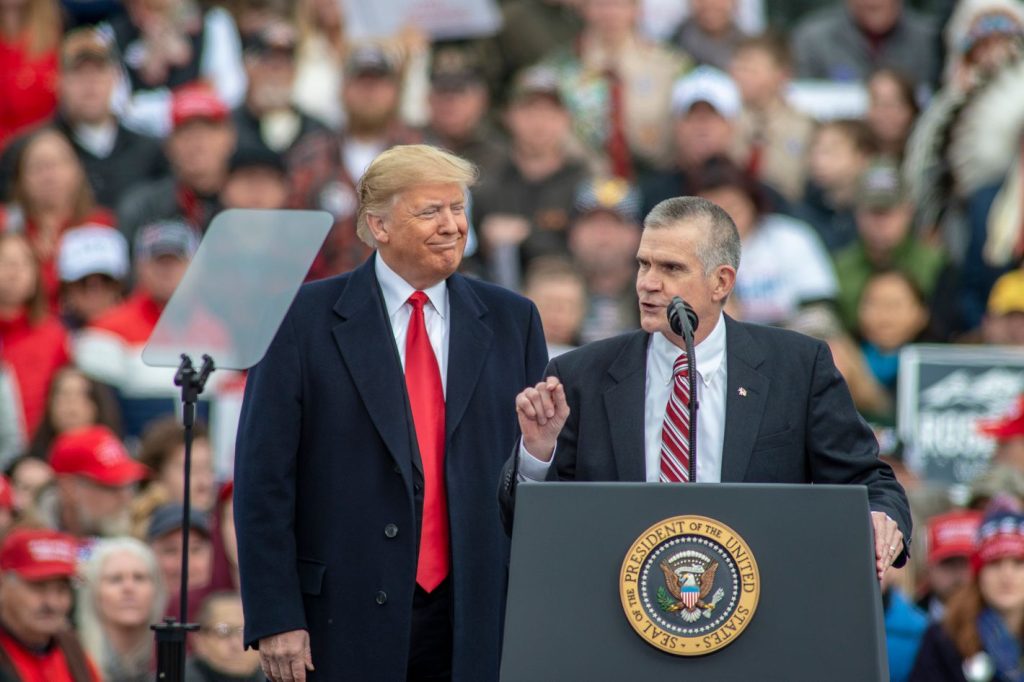Photo: William Campbell/Corbis/Getty Images
It’s been tough for political journalists to find words to adequately describe the radicalism of Donald Trump’s second-term conduct. I’ve used “smash and grab” to suggest a leader and a following who are intensely aware they are living on borrowed time and need to do as much damage as they possibly can to the policies and institutions they despise before their lease on Washington expires. And there’s a certain logic to the destructively extremist approach we’ve seen in executive orders, DOGE raids, the chaotic Trump trade war, and a raft of dubious high-level appointments. After all, history tells us the GOP’s trifecta control of the federal government is very likely to come to an end in the 2026 midterms. Beyond that, the 47th president is in the final stage of his political career and isn’t renowned as someone who cares a great deal about the political party he has hijacked or really anything that happens once he’s gone.
Yet we are now seeing some credible reporting suggesting that far from conceding the midterms and doing exactly whatever he wants, Trump really does care about what happens in 2026 and, particularly, whether Republicans can beat the high odds against keeping control of the House. My colleague David Freedlander has argued that this is what’s behind Trump’s preemptive reelection endorsement of New York representative Mike Lawler, who has reportedly been mulling a 2026 gubernatorial run:
They currently hold a seven-seat majority, but with only three Republicans in Harris-won seats [one of them being Lawler] and eight Democrats in seats won by Trump, many GOP operatives believe that the party can actually hold on to the chamber in the midterms …
[S]o what Trump was really doing was boosting House Speaker Mike Johnson. Republicans on Capitol Hill have been engaged in a monthslong effort to persuade Lawler to run for reelection, believing that he is the only candidate who could hold on to a seat in a district where Democratic voters outnumber Republicans and that may be central to the GOP’s efforts to hold on to the House.
If Trump truly is focused on the inside baseball of winning individual House races to that extent, perhaps there is a tomorrow he’s contemplating. Rachael Bade of Politico goes so far as to suggest that Trump is now obsessed with the 2026 midterms in sharp contrast to his level of interest the first time around in 2018:
Far from writing off the House or Senate, he’s bullish about defying history and keeping Democrats away from committee gavels and subpoena powers, according to five Republicans I’ve spoken to, including several close Trump confidants.
He’s rolling out early endorsements in hopes of forestalling messy primary fights that could divert precious resources from the general election campaigns. He’s making recruitment calls and buttonholing other Republicans about how he can best use his political muscle. And he’s continuing to raise boatloads of money to shell out in 2026.
In 2017 and 2018, Trump kept as much money to himself as he could, anticipating his own reelection campaign. Now his party could benefit a great deal from the two-term limit that means 2024 was the last Trump campaign. But the bigger question is whether the desire to hang on to the House in 2026 (the Senate is a much easier proposition) could lead the president to go a bit easier on the policy extremism and authoritarian power grabbing that definitely marked the first 100 days of his second term. Bade thinks so:
Trump’s midterm obsession is also hovering over Capitol Hill as GOP lawmakers try to write his sprawling domestic policy agenda into law. On issue after issue, Trump appears to sympathize with swing-district moderates — the “majority makers” whose races will decide the majority.
Trump and his aides have pushed back on steep cuts to Medicaid in part because the politics stink. They’ve given a wide berth to blue-state Republicans who are pushing to raise the cap on the deduction for state and local taxes — a policy Trump signed in 2017 that helped sink him in suburban districts a year later.
He’s even toyed with the idea of raising taxes on the wealthiest Americans — something he believes would parry Democrats’ certain political attacks on a bill they say benefits the rich at the expense of the poor.
This interpretation is credible but not totally compelling. Trump hasn’t insisted on the tax-hike-on-the-wealthy idea, and his “moderation” on Medicaid and SALT could just as easily reflect his indifference to policy details as any shrewd calculation of how his “big, beautiful bill” will affect congressional races. A more convincing case for his political prudence could be made if he chose to reverse the damage that his hirelings Elon Musk and Russell Vought continue to wreak throughout the federal government and to back off his confrontations with the federal judiciary. But let’s say he truly is pulling his punches on Mike Johnson’s behalf. What happens if (and this is entirely possible) the GOP’s slim prospects for holding on to the House in 2026 begin to vanish, which could definitely happen if the economy struggles or Trump’s approval ratings don’t recover from their current slough? Will we discover there is a whole new level of authoritarian radicalism Trump 2.0 has yet to pursue but might move toward if Democrats seem sure to bust up the trifecta? That’s a chilling possibility that should cool the jets of anyone eager to assert that Trump is behaving like a normal president.

